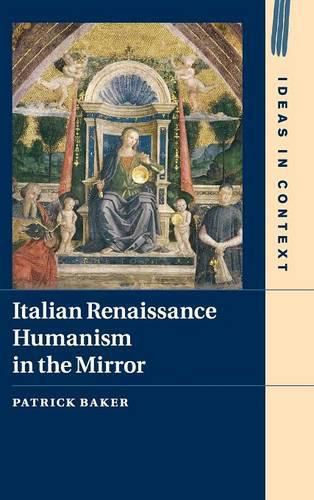Readings Newsletter
Become a Readings Member to make your shopping experience even easier.
Sign in or sign up for free!
You’re not far away from qualifying for FREE standard shipping within Australia
You’ve qualified for FREE standard shipping within Australia
The cart is loading…






This important study takes a new approach to understanding Italian Renaissance humanism, based not on scholarly paradigms or philosophical concepts but on a neglected yet indispensable perspective: the humanists’ understanding of themselves. Through a series of close textual studies, Patrick Baker excavates what humanists thought was important about humanism, how they viewed their own history, what goals they enunciated, what triumphs they celebrated - in short, he attempts to reconstruct humanist identity. What emerges is a small, coherent community dedicated primarily not to political ideology, a philosophy of man, an educational ethos, or moral improvement, but rather to the pursuit of classical Latin eloquence. Grasping the significance this stylistic ideal had for the humanists is essential to understanding both their sense of themselves and the importance they and others attached to their movement. For eloquence was no mere aesthetic affair but rather appeared to them as the guarantor of civilisation itself.
$9.00 standard shipping within Australia
FREE standard shipping within Australia for orders over $100.00
Express & International shipping calculated at checkout
This important study takes a new approach to understanding Italian Renaissance humanism, based not on scholarly paradigms or philosophical concepts but on a neglected yet indispensable perspective: the humanists’ understanding of themselves. Through a series of close textual studies, Patrick Baker excavates what humanists thought was important about humanism, how they viewed their own history, what goals they enunciated, what triumphs they celebrated - in short, he attempts to reconstruct humanist identity. What emerges is a small, coherent community dedicated primarily not to political ideology, a philosophy of man, an educational ethos, or moral improvement, but rather to the pursuit of classical Latin eloquence. Grasping the significance this stylistic ideal had for the humanists is essential to understanding both their sense of themselves and the importance they and others attached to their movement. For eloquence was no mere aesthetic affair but rather appeared to them as the guarantor of civilisation itself.